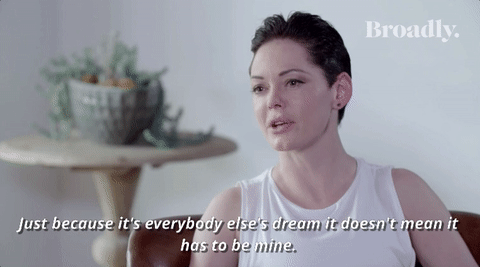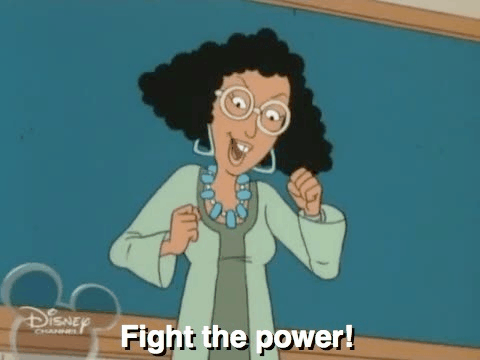The first time I heard country artist Blake Shelton’s single, “I’ll Name the Dogs,” my first impression was, Wow, this is catchy. Because it is. Take a listen.
Essentially, the song is about a couple who marries and settles down with a house, kids, and dogs. They’re super duper in love.
The second time it came on the radio, I paid attention to the inner clockworks of the song, which included the beats, rhythms, sounds, and most importantly, the lyrics. And as I listened more closely, I wanted to scream.
Shelton’s song “I’ll Name the Dogs” is incredibly sexist, and lyrics are reminiscent of the 1950s era. Let’s look at the chorus
"You find the spot and I'll find the money
You be the pretty and I'll be the funny
You plant the flowers, I'll plant the kisses
Baby, let's get right down to business
I'll hang the pictures, you hang the stars
You pick the paint, I'll pick a guitar
Sing you a song out there with the crickets and the frogs
You name the babies and I'll name the dogs, yeah"
In the opening line, Shelton sings, “You find the spot and I’ll find the money.” So basically we’re back to the times where women stayed at home, and the husband was the main provider of income. Following the theme of male dominance of the household, he croons, “You plant the flowers, I’ll plant the kisses...You pick the paint, I’ll pick a guitar.”
Now, one might argue, oh, but the wife gets to pick the paint! Her husband is giving her the freedom to choose! Wow, what an honor. Allowing her to choose the colors of the walls in a home that apparently, she’ll be spending her entire livelihood in further implies the two together: woman and household.
Oh, but the woman is working in the garden! Hooray for her, getting on her knees, down and dirty! Yes, good for her. Getting out of the house and doing the hard labor of gardening. (This isn’t sarcastic). But the fault: these lyrics also suggest that the husband is too “masculine” to be out in a garden of roses. Shelton associates femininity with flowers, adding to gender stereotypes.
As the song progresses, Shelton seems to degrade women and men even more. For example, the lyric, “I’ll hang the pictures, you hang the stars” Is a woman not freaking capable of doing the handy work of using a hammer to hang picture frames? By telling his wife in the song to “hang the stars” — these intangible matters might I add — he insinuates that a woman is incapable of doing any labor-intensive work.
To add to this nonsense, Shelton later drawls in the second verse, “I’ll put a little swing on the front porch/If you put a little tea in my glass.” Yet another case of the man being all “masculine” like it’s his duty to install, build, construct, while the woman is in the kitchen making tea. Lovely.
Now for my absolute favorite lyric from the chorus!
“You be the pretty and I’ll be the funny.”
Just a cherry on top. It just adds to the fact that the woman in the song is Shelton’s trophy wife. Like seriously, “pretty,” this physical attribute was the one word you had to give women while the men got the personality traits? C’mon, Shelton. Couldn’t you find any other word to use besides “pretty”?
Musically, Shelton wins. This song is incredibly catchy and has an intriguing melody that doesn’t make me turn the radio station right away. However, no matter how catchy the song, a song like this cannot be lyrically ignored, especially in the era we live in now.
Please tell me what’s wrong with men choosing paint colors and planting flowers? Can’t women be just as funny as men? Is it still masculine if a man doesn't want to do handy work in the house? So what if women want to be associated with her dogs, aka man's best friend?
The last line of the chorus, “You name the babies and I’ll name the dogs,” refers to the song’s title. What I don’t understand is why both the husband and wife can’t name the babies and dogs together. Why do they have to divide all the tasks? The song should use the pronoun “WE“ more often instead of “you” and “I” separately.
Now, to clarify, I believe there’s nothing wrong if women want to stay at home or if men want to be the main providers of income. However, as a female of the 21st century, I’m pissed that people are accepting a song with lyrics like these and that there’s no bigger outrage.
To all my fellow country music fans, why have we allowed this to be a No. 1 song? What if this was the first song that a non-county music fan listened to because they wanted to see what was popular in country music? Imagine their reaction to the lyrics. This song doesn’t represent the country music that I love nor what I want my younger cousins and friends to listen to and say, “You like this?”
Although Shelton did not pen the song himself, he decided to not just put the track on his latest album, he released it as his lead single. What kind of message does that send? The wrong one if you ask me.





















